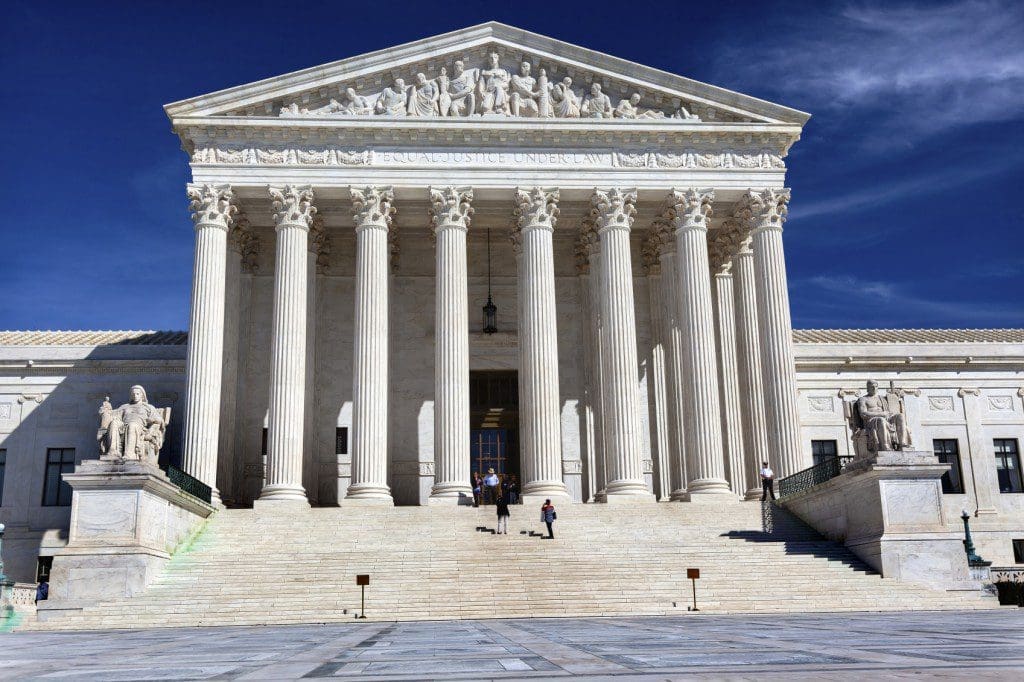We have been following the Madden v. Midland Funding case as it makes its way through the court system. Yesterday, we learned that Midland has appealed the case to the US Supreme Court. The outcome of this case may have an impact on the marketplace lending industry. If you’re unfamiliar with the case you may want to read our first post which details exactly what this case is about.
We reached out to Brian Korn, a Capital Markets Partner at the law firm Manatt, Phelps & Phillips, LLP in New York City. He has over 50 clients engaged in marketplace lending activities and gives us his updated perspective on the case.
Q: When does the Supreme Court decide if they will hear the case?
Brian Korn: The Court could rule on the motion at any time. The Justices and their law clerks review the petition and vote whether to hear the case. 4 out of 9 Justices must agree to hear the case. There are generally three outcomes here: approval and move the case to the calendar; denial; denial with a “Per Curiam” opinion whereby an unsigned opinion is rendered that speaks for the entire court and is generally shorter and more “to the point” than a full opinion. Also, an opposition brief is allowed but not required except in capital punishment cases. Any opposition brief is due in 30 days.
Q: How likely is it that they will hear the case?
BK: It’s very tough to say. The petition sets forth a case which is a significant departure from the precedents of the other circuit courts. The attorneys for Midland have framed the following arguments:
- The decision below creates a conflict among the courts of appeals
- The decision below is erroneous
- The question presented is an important one that urgently warrants the Court’s review
These are all key buzz words in any petition to the Supreme Court. The case has to be important, wrongly decided below and it helps if there is a conflict among courts since a key role of the SCOTUS is to ensure that we are all equally protected under the same federal laws. Cases have poor chances of being heard generally, but with the arguments presented and the buzz the case has received, I give it a 50% chance.
Q: What is your opinion as to the outcome of the case?
BK: I believe the case does fly against settled precedent and also disrupts a lot of “real life” situations. Having said that, marketplace lenders do not operate under the National Bank Act, so much of the industry uproar is based on similar facts and analogous provisions in other statutes. But the laws allowing consumer platforms to export their interest rates to other states are not strictly impacted by the case. It is foreseeable that a case could be made that uses Madden as strong persuasive authority to attack the marketplace lending industry.
Q: If the court agrees with the Second Circuit what does that mean for the industry?
BK: If the case is not heard we are at status quo. That does not mean the Supreme Court agrees with the Second Circuit. If anything it will be a statement that the Court is too busy or does not find the disagreement compelling enough to intervene. Nothing changes in non-Second Circuit states (NY, CT, VT).
If it is heard and the decision affirms the Second Circuit, it essentially serves as federal validation of the Second Circuit and I believe that will hasten more Madden cases nationally. I believe there would be real change in the way lenders operate in order to change their facts from that of the Madden “sell and go away” model. Investors will be more circumspect of the entire industry until banks continue to have a greater role in the process. Ironically, this could be a revenue opportunity for WebBank and Cross River Bank, as their needed involvement in loans downstream will allow them to increase their rates. I would expect significant dissenting opinion from the Court in that case which sometimes is cited in future cases. If the case is heard and reversed, then Madden goes away- but that does not mean regulators cannot impose additional restrictions.
You can view the full Supreme Court petition here.



